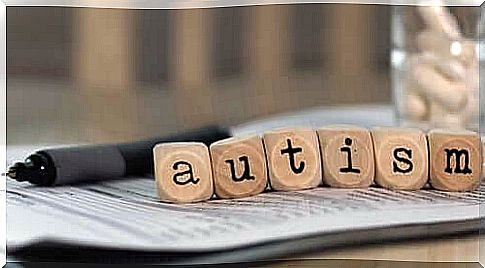Autism In Adults: Psychological And Social Challenges To Achieving Well-Being

When we talk about autism spectrum disorder (ASD), it is common to think about the challenges and needs of children who have it. We know that early detection improves the development and quality of life of this group. However, what is autism like in adults? What needs, what types of support and strategies do men and women with this neurobiological condition require?
Since diagnostic criteria improved in the 1990s, the identification of ASD has not only occurred in schools. Since that decade, many adults have managed to find an explanation for their behavior, an answer for their particularities and the origin of their personal limitations.
One thing we must not forget is this: we are facing a developmental disorder that encompasses a wide spectrum of characteristics and needs.
We have people with Rett syndrome and Asperger syndrome. We can have adults with highly functional autism, as well as those who are more dependent, with severe communication limitations, problems in social interaction, and more pronounced repetitive behaviors. In any case, there is something we must understand.
Psychological attention, social assistance and the right to inclusion constitute axes that must never be forgotten. Autism in adults is a reality that must be visible to ensure the necessary responses. Only then will they achieve the fullness and well-being that every person deserves.
Let’s learn more below.

What are the needs of adults with autism?
It is important to know that adulthood has been a neglected area of research when it comes to better understanding autism spectrum disorder (ASD). Fortunately, in recent years, interest in it has increased, and we now have more data, more resources and knowledge.
All of this translates into a major objective: to offer an individualized and specialized response for each person according to their needs. However, within clinical practice, we encountered a problem. There are highly functional adults with autism who are unaware that they have this condition.
They are independent people, with their professional responsibilities and life projects, who realize that something is wrong with them. Problems in social interaction, hypersensitivity to stimuli and anxiety often severely limit your quality of life. So, one thing we should know is that no two people with ASD have the same characteristics.
However, in addition to the uniqueness of each one, autism in adults influences the daily reality of this broad group. Early, personalized detection and treatment ensure change, improvement and well-being.
We’ll see what challenges these adults present and what kind of assistance they demand next.
Consult psychologists specializing in ASD (autistic spectrum disorder)
If you have an adult relative with autism, or you suspect they may be on the spectrum, it ‘s best to see a professional who specializes in that area. What can a qualified psychologist provide us with?
- A comprehensive assessment to identify the strengths and, above all, the cognitive, behavioral and emotional needs of the adult with autism.
- Interviews with the patient’s social environment.
- Medical tests to rule out other conditions.

Autism in Adults and Types of Therapy
Psychological intervention in adults with autism will always depend on their particular needs. On average, the following aspects are usually worked on:
- Training in communication and social skills.
- Integration of habits into everyday life.
- Modification of certain behaviors to favor their integration, well-being and social behavior.
- Practice of functional routines so that the adult with autism has an adequate feeling of security and autonomy.
- Promote integration at work.
- It is also essential to address dimensions such as anxiety and mood disorders such as depression. Let’s not forget that this kind of reality involves facing multiple emotional challenges. Cognitive-behavioral therapy is very appropriate in these cases.
- On the other hand, individual psychotherapy is also essential. A man or woman with ASD needs to improve many of their relationships, whether at the emotional, family or work level.
- We must not forget that there are people with autism who have more severe cognitive deficits. Behavioral problems may arise, for which psychological support is essential.
Support for the family and the surrounding environment
Last but not least, talking about autism in adults implies, in turn, taking into account the family environment. Fathers, mothers, partners, children… Knowing how to act or simply understanding what autism spectrum disorder is is a decisive step to make the patient’s life easier.
In this respect, psychologists are a daily help and support. With them, it is possible to manage fears, doubts, anxiety, stress… In essence, the personal reality of this large group of our society is complex and unique, but there are resources, strategies and teams of experts that can help and provide us, little by little , a better quality of life.








